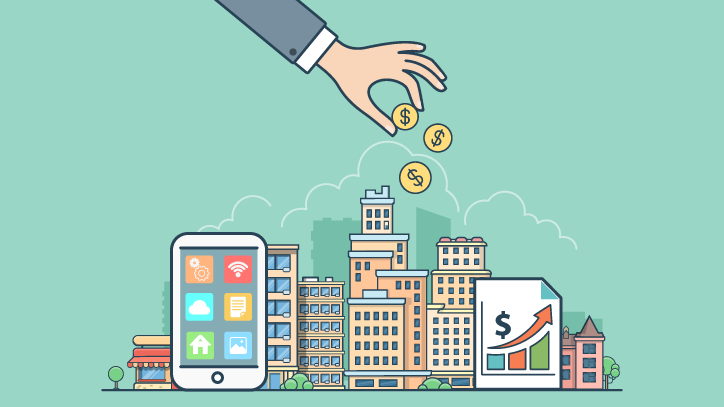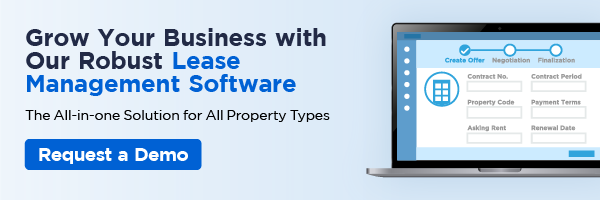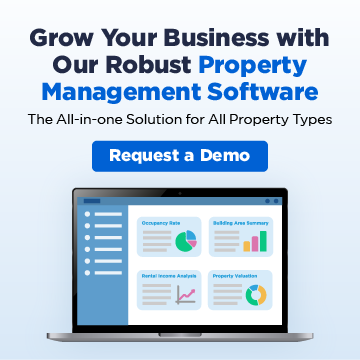Managing commercial leases is never easy. Under the updated lease accounting rules, lease management, also referred to as lease administration, has an impact – that is much more significant than before – on the financial reporting and bottom line of a company. For the commercial real estate sector, regardless of the number of commercial leases your company manages, lease management is a time-consuming process involving reporting, document management, compliance and massive administrative tasks that may stall your company’s growth. However, there is a silver lining – you can turn lease management into a cost-effective process that benefits your business by automating the lease lifecycle with a lease management software.
Lease management process
Lease management is the process of keeping track of a company’s portfolio of leased properties and ensuring the terms of leases are followed. The process includes lease negotiation, lease administration, lease accounting and lease compliance.
Moreover, some people deem lease management and property management to be the same, however they are dissimilar. Property management is how a company manages all aspects of its commercial properties, for example maintenance, security, and rent collection; lease Management, on the other hand, is how a company oversees and maintains its real estate portfolio, put simply, it is all about leases.
There are several tasks involved in lease management process that must be addressed on a daily basis or from time to time, including but not limited to:
• Lease negotiation: discussion of lease structure, lease length and lease terms.
• Lease tracking: keeping track of renewals and lease data, reporting vacancies, and managing operating expenses.
• Lease accounting and compliance: managing lease-related payments and charges, recording journal entries, calculating asset and liability figures, and staying compliant with lease standards.
What is Lease Management Software and why is it important
Lease Management Software is a centralized tool that helps commercial real estate professionals to manage leased properties. With features ranging from tracking lease data, managing applications and documents, and automating renewals, a lease management software can help streamline the lease management process flow, and optimize property lease management strategies. Given that property income is the key contributor of commercial real estate organizations’ profitability, , a lease management software can also minimize operational expenses, while staying in compliance with the latest lease accounting standards.
Benefits of Lease Management Software
A robust and flexible lease management software can cover all aspects of lease management, enabling you to handle all the lease tasks in a comprehensive and adaptable way: The benefits are as follows:
1. Automate daily lease administrative tasks
A lease management software can automate complex day-to-day leasing tasks, such as sending monthly tenant statements automatically, generating notifications and reminders for lease renewals and terminations, adjusting quotes and price, assessing availability of assets, and so on, resulting in reducing manual input and workload of your leasing team.
2. Gain deeper insights with real-time and accurate data
A lease management software can provide lease data and real-time visibility that help you make formed leasing decisions. Cloud-based lease management software can even allow authorized users to access information from anywhere at any-time.
3. Keep track of lease portfolio and prevent compliance errors
A lease management software provides lease terms documentation, and audit functions to alert false payments and an audit trail for all lease changes; it can also allow you to customize approvals for lease accounting tasks, helping you minimize the chance of making operative errors.
Lease Compliance
Lease compliance is the fundamental component of lease administration. When it comes to effective lease management, meeting the requirements of lease accounting standards such as IFRS16, GASB87 and ASC842 is the top priority.
With the implementation of IFRS16, the new International Financial Reporting Standard (IFRS) that came into effect in January 2019, lessees are required to record both right-of-use assets and lease payment liabilities on their balance sheet, further complicating the lease management and accounting processes.
Regarding the importance of complying with these lease accounting standards, a lease management software is necessary to ensure your company stays compliant with lease standard compliance; it can also provide real-time financial consolidation reports, revenue recognition rules for leasing and auto general ledger impact.

What is IFRS16?
IFRS16 (International Financial Reporting Standard 16 Leases) is a new lease accounting standard published by the International Accounting Standard Board (IASB) and came into effect on 1 January 2019 to replace the old standards including IAS17, IFRIC4, SIC-15 and SIC-27. This new accounting standard outlines the principles for the recognition, measurement, presentation, and disclosure of leases.
What is the difference between IFRS16 and the old standards?
According to the old standards, lease payments can be counted as operating leases on lessees’ balance sheets. However, under the IFRS16 regulation, lessees must report lease payments as lease liabilities on their balance sheets, almost all operating leases should be counted as finance leases and shown on the balance sheets.
Conclusion
Proper lease management is crucial to your company’s success as it can maximize workforce efficiency and reduce operating costs. In this digital era, the commercial real estate industry has intertwined with digital transformation, therefore, to achieve effective lease management, leveraging technology such as lease management software is imperative to grow your real estate business. We offer robust and innovative solutions to help commercial real estate organizations automate complex leasing processes, freeing up your team so they can focus on exploring more leasing opportunities.
Image by sentavio on Freepik
GaiaPM, a member of the FlexSystem Group, provides international lease and property management software designed to help you drive performance up and costs down. As a global solutions provider in over 38 countries GaiaPM, together with its proven solutions for multi-currency financials, human resources, and operations, is a business software vendor to 1 in 10 Forbes Global 2000 (May 2020), and 1 in 5 Global Fortune 500 (August 2020), operating at the intersection of new digital process and payment technologies, whether on-premise, hybrid or cloud, to provide you with iterative opportunities for value creation.





